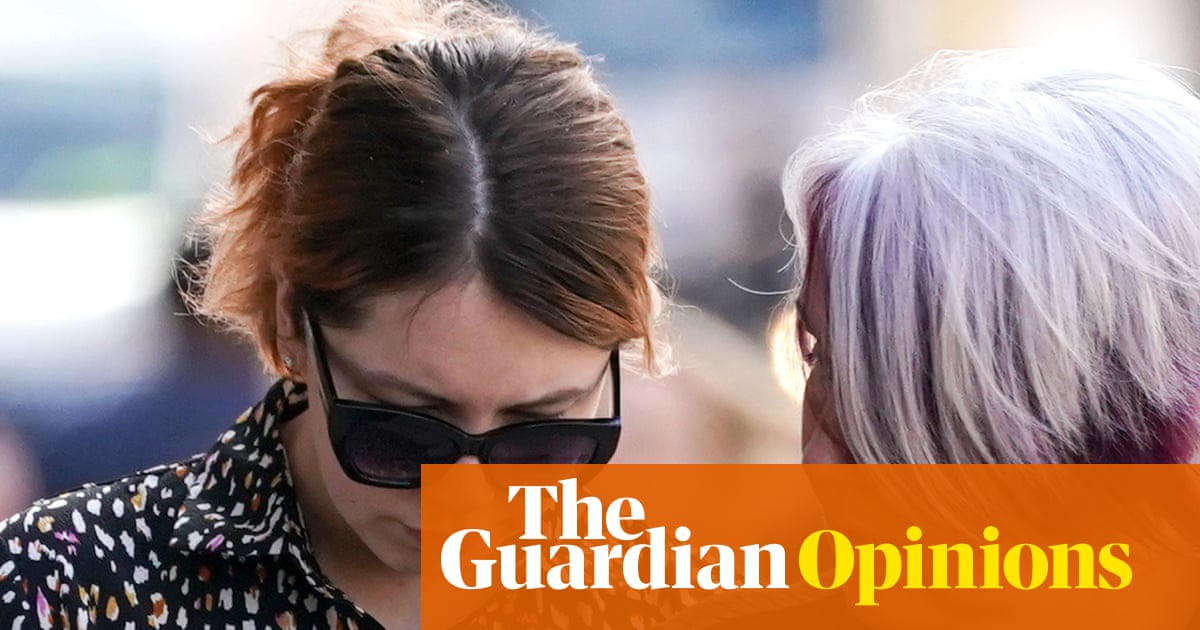
When Georgina Fallows even contemplates putting on a mask, the flashbacks to her rape can be overwhelming and debilitating. She is not alone.
Rape survivors are among those voicing deep concerns about the stigma and ensuing “mask rage” attached to not wearing a face covering in shops, on transport and in other public places, prompting calls for better recognition of legitimate reasons why people are exempt.
A number of rape and sexual abuse survivors have told the charity Rape Crisis they are so scared of being confronted and verbally abused for not wearing face masks that they are avoiding places where they may be challenged.
“A significant proportion of rape survivors had their mouths or noses covered, or were choked or smothered, as part of the abuse and violence they experienced,” said Kate Russell, the national spokesperson for Rape Crisis England and Wales. “Covering their face and nose now can trigger flashbacks, panic attacks and severe anxiety.”
Severe distress is recognised by the government as a reason for a legal exemption from the mandatory use of face coverings. But rape victims still fear they will be castigated.
Russell said: “There’s a lot of assumptions that people who aren’t wearing face masks are behaving that way because they’re selfish, stupid, careless or a combination of all three. This lack of awareness is creating legitimate anxiety among rape survivors that if they go out and about they might not be met with empathy and care.”
Fallows, a 29-year-old solicitor, suffers from post-traumatic stress disorder and cannot bear to have her mouth covered, years after her experience of rape.
“For part of my rape, he had his hand over my mouth. As a result, anything over my mouth – even an oxygen mask – can trigger a flashback. And that is hugely distressing. Physically, it feels like I’m back there again and he’s raping me and I am dying,” she said.
The distress she suffers amid flashbacks can be so severe that paramedics have felt it necessary to call the police to hold her down so they can sedate her. “It’s absolutely horrendous. I would like to be able to wear a mask, not just for my own health, but because I don’t want to make other people feel uncomfortable. But even the thought of putting on a mask makes me very, very, very panicky.”
When she tried to get her hair cut after lockdown, another customer interrogated her about her lack of a mask, refusing to accept Fallows’ reply that she was exempt.
“She told me that was ridiculous and said I had no proof. I cried all the way home. She truly believed that I was a self-centred, ignorant girl who didn’t give a shit about anybody else. I felt completely worthless.”
Since then, whenever she has tried to go to an enclosed public space without a mask, she has been challenged. She is now avoiding all shops and public transport which, since she has no car, is severely restricting where she can go. “I can’t see my family, who live two hours away. If I want to go anywhere, I have to walk.”
She fears this could leave her vulnerable to another attack – she was dragged off the street by her rapist – and so spends a lot of time alone in her bedroom. “I’ve tried so hard to rejoin life again, as it were. But it feels like it has all been taken away again.”
She contacted her MP, local councillor and mayor to urge them to mount a public awareness campaign about the legitimate reasons for mask exemptions, but received no response.
She has waived her right to anonymity to raise awareness. “People feel like they have the right to challenge you, and that is awful. You wouldn’t look at me and know I’d been raped, but I was, and it’s a huge problem for me. I spend most of my time trying to forget what happened to me. I don’t need to be challenged about this three or four times a day, just trying to live my life. All it does is remind me of something I’m desperately trying to forget.”
Rape Crisis wants shops and public transport companies to display signs and remind customers there are legitimate reasons people may not be wearing masks, which may not always be visible or obvious, and discourage customers from challenging each other.
The Oxfordshire Sexual Abuse and Rape Crisis Centre has compiled a list of ways in which some survivors of sexual violence have found it possible to wear face coverings.
“The list offers support and advice for survivors around face coverings and how they can perhaps make the experience of wearing a face covering less traumatic,” said Russell. She urged any survivor who is distressed or concerned about wearing a face mask to get in touch with Rape Crisis nationally or a local service.












